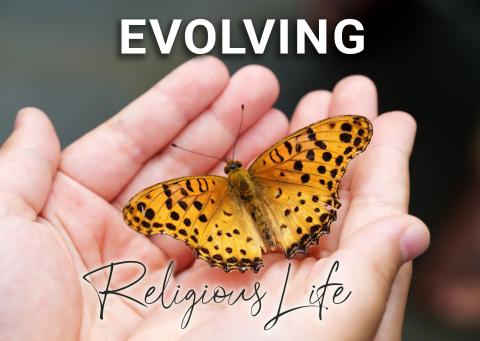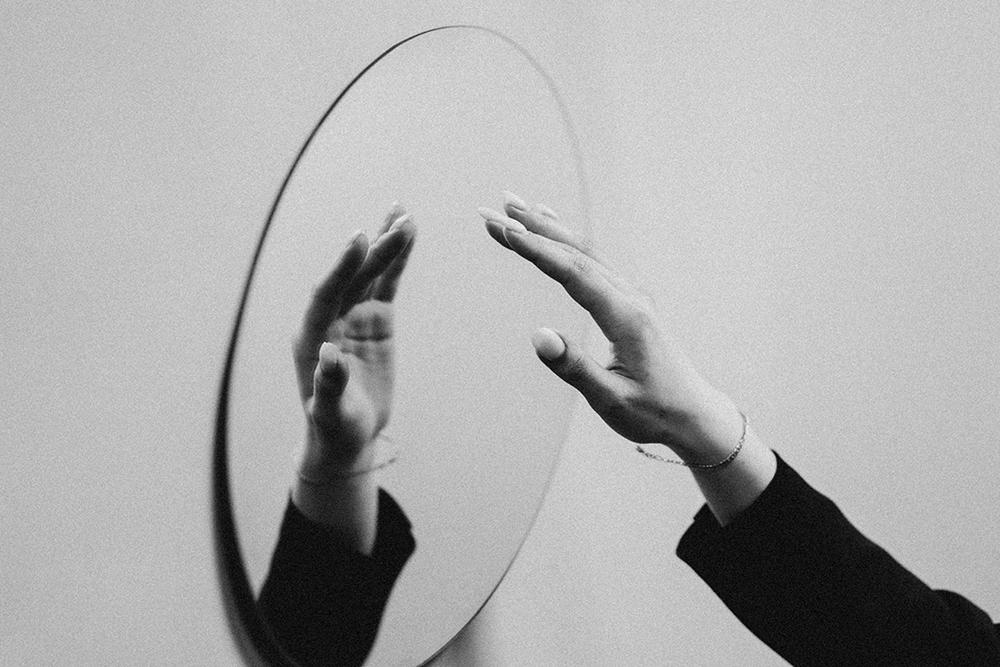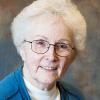
(Unsplash/Chris Lawton)
Editor's note: Evolving Religious Life, a series from Global Sisters Report, explores how Catholic sisters are adapting to the realities of congregations in transition and new forms of religious life. While we often write about these trends, this particular series will focus more closely on sisters' hopes for the future.

As we journey through the later stages of life, we may find ourselves invited to turn inward, reflecting on the experiences, choices and spiritual depths that have shaped us. This inward journey is not one of isolation but of discovery — a pilgrimage that offers profound psychological and spiritual gifts.
In my past column, we reflected on a surprising gift that comes to many of us in older adulthood: an invitation to explore the inner landscape of our lives. There are at least two psychological benefits to embarking on this inner pilgrimage.
First, there's the possibility of discovering dimensions of our lived experience that have been ignored or denied, yet still shadow our lives and contribute to our actions and attitudes. Becoming aware of them provides the opportunity to integrate them into our sense of identity.
The second gift comes from the natural life review that is part of this stage of life. Tripping down "memory lane" serves to assess the worth of our lives. If I can say, "This is my life, the one and only one I could have lived," then I have successfully resolved my last ego task. However, if my assessment is more negative, I am left with feelings of hopelessness, bitterness and failure.
Advertisement
But we need not stay there. Embedded in this apparent failure is an invitation to take what we have seen and heard and bring it to Jesus for healing. We know that God waits to heal and forgive. This act of faith and trust is an important lesson of the inner journey.
Let's now reflect on the "spiritual gifts" that can be ours as we journey within. I single out two very special ones: becoming a mystic and becoming one's true self. For many of us in elder adulthood, our understanding of mystics and mysticism has been tainted by debates over infused contemplation and by some external behaviors of mystics. Simply put, a mystic is a person who believes in the spiritual apprehension of truths that are beyond the intellect. A mystic seeks union with God through contemplation and self-surrender.
Thomas Merton was fascinated with the idea of the "true self," a topic he often reflected on in his writings, including New Seeds of Contemplation. I believe that the inner journey, if faithfully followed, will bring us to the existential awareness that the self we have promoted and protected over the years is not our true identity. Our identity is far deeper and richer than what we perceive. We may catch glimpses of it, but we will never fully see ourselves as we are. The inner pilgrimage holds up a mirror, allowing us to see and choose who we wish to become in God's eyes. In St. Augustine's words:
Urged to reflect upon myself, I entered under your guidance into the inmost depth of my soul. I was able to do so because you were my helper. On entering into myself I saw, as it were with the eye of my soul, what was beyond the eye of my soul, beyond my spirit: your immutable light. It was not the ordinary light perceptible to all flesh, nor was it merely something of greater magnitude but still essentially akin, shining more clearly and diffusing itself everywhere by its intensity.
Journeying inward requires us to change our way of thinking and knowing. Our culture prizes competency and mastery, which are good, but they can cloud our thinking and knowing. Competency and mastery demand power over what we look at, be it a Sudoku puzzle, a vocabulary list, or a recipe. Yet not all reality can be reduced to that which is manageable. In our reflective moments, we know ourselves to be mystery, and to be surrounded by it. A good definition of mystery is "something that can be pondered endlessly without ever coming to an end. Something that transcends our understanding even as it delights us."

(Foto: Unsplash/Sekatsky)
The inner pilgrimage holds up a mirror, allowing us to see and choose who we wish to become in God's eyes.
As adults, our normal way of knowing — what the French philosopher Gabriel Marcel called the "having mode" — seeks to understand and master through analysis and abstraction. Marcel proposes another equally valid way of knowing — the "being mode." Here, we encounter the person, the object, ourselves as a presence to be experienced, revealing itself on its own terms, not ours. This "being mode" is especially necessary in a world dominated by science and technology.
These gifts — becoming a mystic and becoming our true self — are really one, different facets of the same gift. In Augustine's words, cited above, he confesses that undertaking this inner pilgrimage was prompted by the Holy Spirit. So it is with us. We follow the Spirit's lead as we closely examine our actions and choices, asking questions like, "Why did I choose to do that?" "What motivated me?"
The more we question, the more we realize there are many layers of reasons behind our choices — some social/cultural, arising from group expectations; some psychological, stemming from our unique personality dynamics; some spiritual, reflecting our deepest desires. As we scrutinize our past and present behaviors and choices, three questions must never be lost sight of:
- Is this who I am?
- Is this who I wish to be?
- Is this where God is leading me?
These reflections on the gift of elder adulthood were presented in an interactive workshop for sisters, most of whom were elder adults. The conversation and sharing reached an unexpected, but welcomed depth. I hope the same depth may be experienced by anyone or any group engaging with this material and their journeys.
One sister expressed a concern that might be shared by other apostolic religious. "Isn't this too much inward-looking? Shouldn't we be outward-looking about the mission?" Mechthild of Magdeburg addressed this in her work The Flowing Light of the Godhead:
Do you want to know how you can best use God's holy favor and enjoy it as He wants you to? You know God's will will teach you this itself, if you welcome it. Receive God's kindness externally (via virtues) and internally (through your yearnings). … When you've succeeded in this in your most intimate being, your soul will grow tired in the embrace of her mortal body. Then the soul will say after each pleasurable encounter with God: "Lord, now leave my inner self and stand by my earthly self, so all my actions will shine in proportion to Your favor. Help me suffer willingly and complain very little about my problems."





